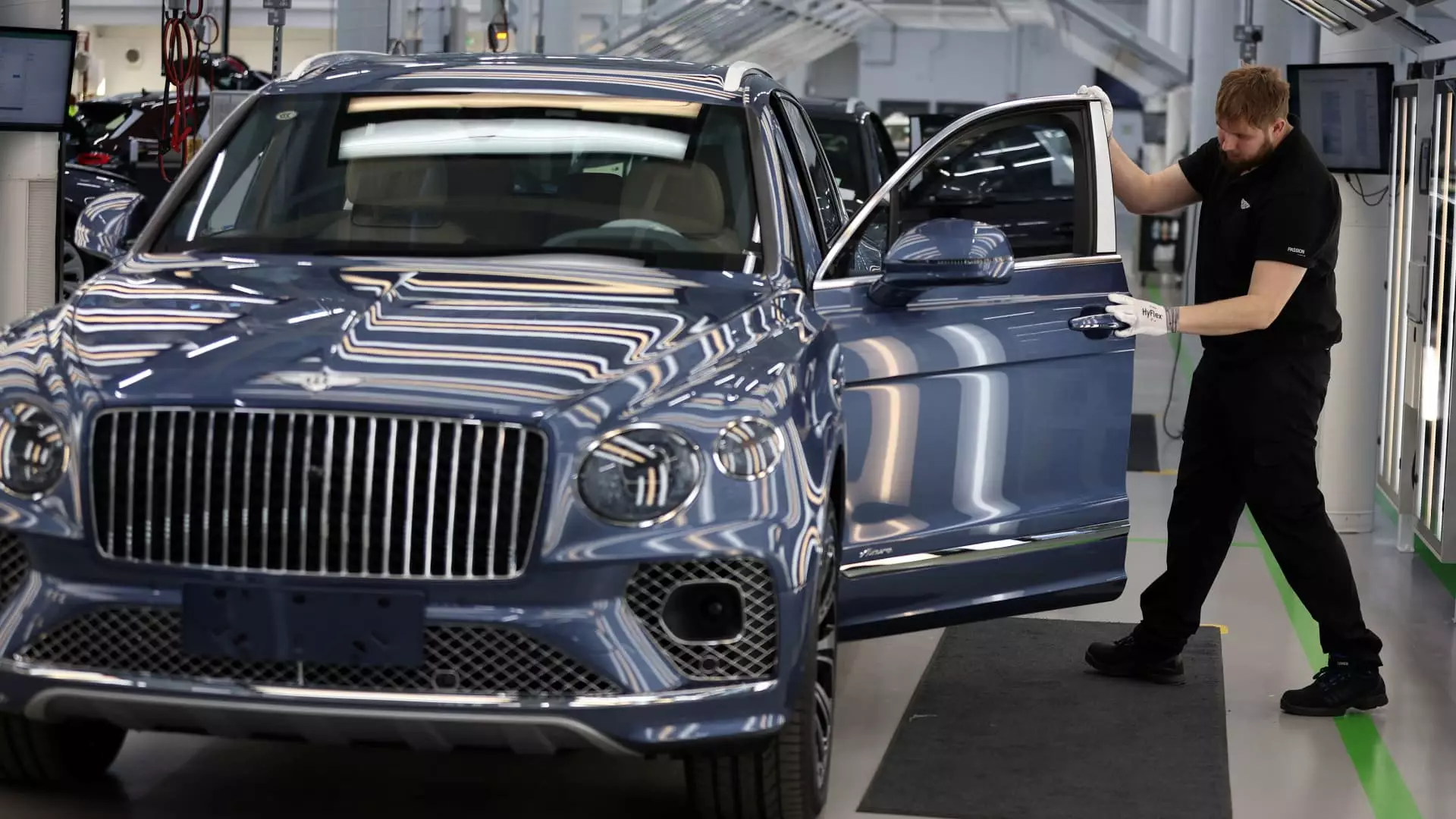In recent developments, Bentley Motors, the renowned British luxury car manufacturer, has once again postponed its goal to transition entirely to all-electric vehicles (EVs). Initially setting sights on an exclusive electric lineup by the end of this decade, the company is now pivoting toward a reliance on plug-in hybrid electric vehicles (PHEVs) until at least 2035. This change reflects a broader trend in the automotive industry, where market dynamics and consumer demand heavily influence manufacturing strategies.
Bentley’s Chairman and CEO, Frank-Steffen Walliser, shared insights during an online media briefing, revealing that the demand for EVs among Bentley’s traditional clientele remains minimal. With this reality in mind, Walliser emphasized the necessity for Bentley to adapt not only in response to market forces but also to prepare for an emerging generation of environmentally-conscious consumers. He articulated the dual pressures of regulatory mandates and competitive market forces driving the company’s shift toward electrification.
Market Dynamics and Consumer Preferences
The automobile industry is in a state of flux, characterized by evolving regulations and shifting consumer preferences. Bentley’s delayed transition underscores a significant challenge faced by luxury automakers: balancing the heritage and tradition of performance vehicles with emerging sustainability demands. The reliance on PHEVs, which combine internal combustion engines with electric propulsion, serves as a bridge between the present and a future dominated by fully electric options. Matthias Rabe, Bentley’s head of research and development, highlighted that the company intends to meet market demand by continuing to produce PHEVs while also keeping the door open for traditional combustion-engine vehicles.
This approach suggests a strategic response to a consumer base that is not yet fully on board with the idea of all-electric luxury motoring, particularly among buyers accustomed to the visceral qualities of Bentley’s iconic W12 and V8 engines. The decision to delay its first all-electric vehicle, initially slated for a 2025 release, to a later date indicates an acute awareness of customer sentiment and market realities.
Innovative yet Cautious: Bentley’s Future Lineup
Turning the page to the future, Bentley has laid out plans to introduce a new EV or PHEV annually leading up to 2035, beginning with a “Luxury Urban SUV” slated for 2026. This model signifies not only a technological evolution but also a tonal shift in Bentley’s product lineup. Unlike the larger, opulent vehicles the brand is traditionally known for, this new offering will be notably smaller, catering to a growing preference for compact luxury vehicles. This shift reflects a broader industry trend favoring agility and efficiency without sacrificing the premium experience synonymous with Bentley.
Walliser’s comments indicate a responsive and adaptable mindset as the company evolves its strategy. Transitioning from the “Beyond100” initiative—an ambitious program named to mark Bentley’s century-long legacy—the company has rebranded its vision to “Beyond100+.” This shift not only reaffirms Bentley’s commitment to future developments but also signals a recognition of the unpredictable landscape in which luxury automakers now must operate.
Bentley Motors exemplifies the complexities facing the luxury automotive segment as it grapples with significant shifts in electrification mandates and consumer expectations. While the company acknowledges the current limitations in demand for all-electric vehicles, its commitment to adapt through incremental electrification via PHEVs illustrates a thoughtful and measured approach.
The departure from a 100% electric model in the near term does not negate Bentley’s aspirations; rather, it encapsulates a narrative of evolution—one that honors its prestigious legacy while paving the way forward. For Bentley, the journey toward electric mobility is not merely a response to external pressures but a strategic embrace of the future that aligns with the brand’s storied values of craftsmanship, luxury, and performance. As Bentley navigates these changes, the automotive world will keenly observe how this storied name adapts to the demands of a rapidly evolving market landscape.



Leave a Reply